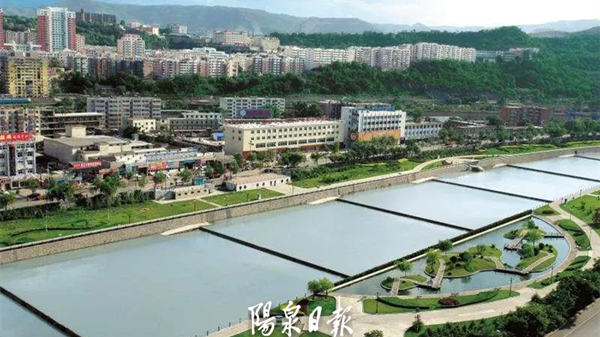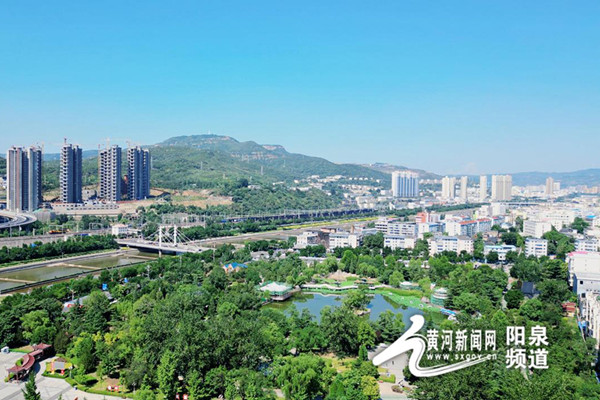Unmanned delivery vehicles optimize express in Yangquan
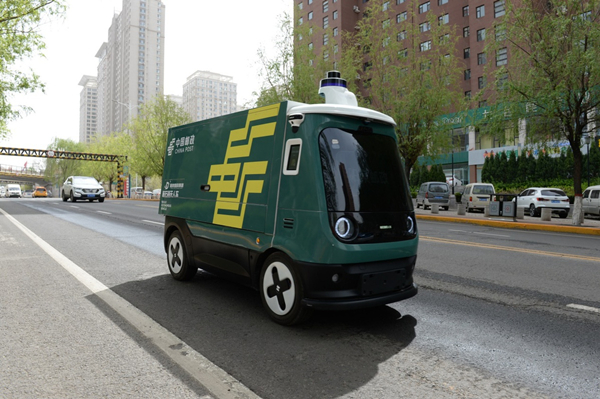
An unmanned delivery vehicle runs in Yangquan. [Photo provided to chinadaily.com.cn]
The implementation of unmanned delivery vehicles in more than 30 postal express stations in urban Yangquan, North China's Shanxi province, recently caught the public's attention.
These new energy vehicles are equipped with autonomous driving technology systems and remote control systems that can identify traffic lights, flexibly handle complex road conditions, and realize artificial intelligence scheduling, all-round monitoring, and cloud management.
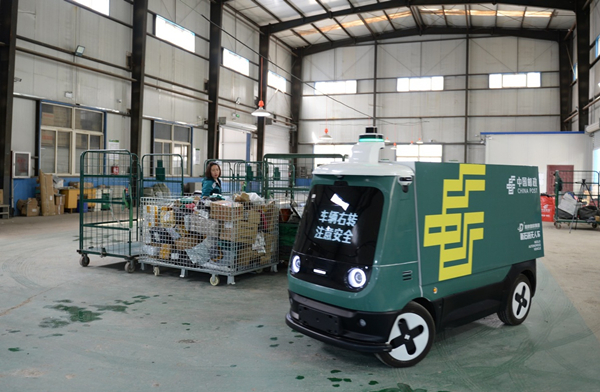
An unmanned delivery vehicle runs in an express warehouse in Yangquan. [Photo provided to chinadaily.com.cn]
Such a vehicle has a maximum cargo capacity of 600 kilograms, and can travel around 200 kilometers every day with full power storage. This has greatly reduced the pressure of manual distribution and improved distribution efficiency.
Currently, 13 unmanned delivery vehicles serve in Chengqu district, Kuangqu district, and the Yangquan High-tech Industrial Development Zone. They deliver more than 10,000 packages every day.
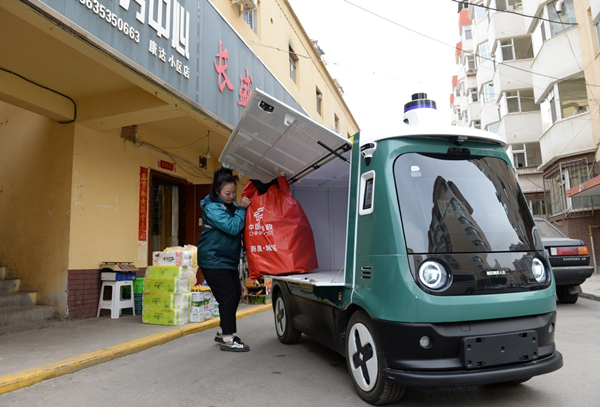
A delivery personnel puts packages into the unmanned delivery vehicle in Yangquan. [Photo provided to chinadaily.com.cn]
As the first prefecture-level city in China to open autonomous driving across the whole region, Yangquan has carried out autonomous driving testing and operations on 200 km of roads. It has also reconstructed roadside infrastructure at 50 of its traffic intersections.
Unmanned vehicles have been applied in the city's transportation, sanitation, urban management, and logistics fields, forming an autonomous driving service system and bringing unique experiences to local residents.
Yangquan has also been accelerating the construction of a digital and intelligent city that integrates big data, cloud computing, AI, and the internet of things into its urban development. Additionally, it will establish intelligent and digital public services and promote the digital transformation and upgrading of local traditional industries.




